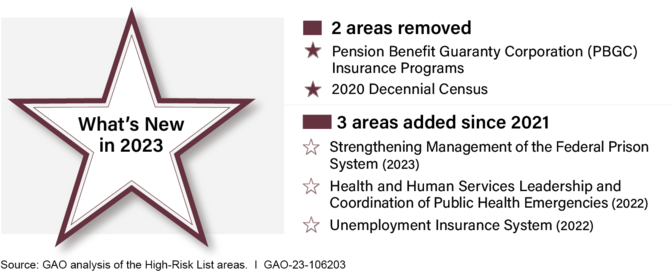Have you ever wondered what does an event manager do behind the scenes to ensure a seamless event? Event managers are the unsung heroes who orchestrate every detail of an event, from conception to completion. Their role is multifaceted – they negotiate with vendors, create event timelines, manage budgets, coordinate with various stakeholders, and troubleshoot issues on the fly. In this blog, we will delve into the exciting world of event management and unveil the crucial responsibilities that event managers undertake to make your events a resounding success. Join us on a journey to uncover the intricate tasks and skills that define the pivotal role of an event manager.
Introduction: Understanding the Role of an Event Manager
Event managers play a crucial role in the successful planning and execution of a wide range of events, from corporate conferences to weddings and music festivals. A skilled event manager possesses a diverse skill set that combines organizational prowess, creativity, and effective communication to bring events to life. They are responsible for overseeing all aspects of an event, from initial planning stages to post-event evaluation, ensuring that every detail is meticulously taken care of to create memorable experiences for attendees.
The Responsibilities of an Event Manager
Event managers are tasked with a myriad of responsibilities that include:
- Developing event concepts and themes that align with the client’s objectives
- Creating detailed event budgets and timelines
- Securing suitable event venues and vendors
- Coordinating logistics such as catering, transportation, and audiovisual setups
- Managing event promotion and marketing strategies
- Supervising event staff and volunteers
- Resolving any issues or obstacles that arise during the event
- Conducting post-event evaluations to assess the event’s success
The Skills Required for Success
Successful event managers possess a unique blend of skills, including:
- Strong organizational and time-management abilities
- Excellent communication and interpersonal skills
- Creativity and innovative thinking
- Problem-solving and decision-making expertise
- Ability to work well under pressure and manage multiple tasks simultaneously
- Attention to detail and a focus on quality

Key Responsibilities of an Event Manager
Event managers play a crucial role in planning and executing successful events, ensuring that everything runs smoothly from start to finish. Some key responsibilities of an event manager include:
1. Event Planning
Event managers are responsible for meticulously planning all aspects of an event, from choosing the venue and coordinating vendors to creating event timelines and budgets.
They oversee all logistical details, ensuring that nothing is overlooked.
2. Vendor Coordination
Event managers work closely with various vendors such as caterers, decorators, and audio-visual technicians to ensure that all services are delivered as per agreed terms.
- Securing contracts with vendors
- Managing vendor relationships
Skills Required to Excel as an Event Manager
Event management requires a unique set of skills to handle the dynamics of organizing successful events. To excel in this role, event managers need to possess a diverse skill set that encompasses both creativity and meticulous planning. Here are some key skills required to thrive as an event manager:
1. Exceptional Organizational Skills
Event managers must be highly organized to coordinate multiple aspects of an event seamlessly. Attention to detail and the ability to manage timelines efficiently are crucial in ensuring the event runs smoothly.
2. Strong Communication Abilities
Effective communication skills are essential to liaise with clients, vendors, and team members. Clear and concise communication helps in conveying ideas, resolving issues, and ensuring everyone is on the same page.
3. Creative Problem-Solving
Event managers often encounter unexpected challenges that require quick thinking and innovative problem-solving skills. The ability to think on your feet and come up with creative solutions is invaluable in the fast-paced event industry.
4. Financial Management
Having a good grasp of budgeting and financial management is crucial for successful event planning. Event managers need to be able to negotiate contracts, track expenses, and ensure the event stays within budget.
The Importance of Event Managers in Various Industries
Event managers play a crucial role in various industries by overseeing the planning and execution of events to ensure they are successful. Their responsibilities include coordinating logistics, managing budgets, liaising with vendors, and ensuring that the event runs smoothly.
Enhancing Brand Awareness
Event managers are instrumental in enhancing brand awareness for companies by organizing events that showcase their products or services to a targeted audience. These events help create positive brand associations and improve brand visibility.
Driving Customer Engagement
Event managers are essential for driving customer engagement through experiential marketing events. By creating memorable experiences for attendees, event managers help businesses connect with their target audience on a personal level.
Challenges Faced by Event Managers
Event managers face a myriad of challenges in their roles, requiring exceptional organizational skills and attention to detail. From planning and coordinating various aspects of an event to dealing with unexpected hurdles, the job can be demanding.
1. Budget Management
Managing finances efficiently while delivering a high-quality event can be a major challenge. Event managers need to balance budgets effectively to ensure all aspects of the event run smoothly.
2. Vendor Coordination
Coordinating with multiple vendors, such as caterers, decorators, and AV technicians, requires strong communication skills and the ability to negotiate contracts to achieve the desired outcomes.
3. Time Constraints
Meeting deadlines and ensuring everything is set up on time can be stressful. Event managers must create realistic timelines and work efficiently to execute events successfully.
Tips for Aspiring Event Managers
Event management is a dynamic field that requires a diverse skill set and a passion for creating memorable experiences. If you are looking to kickstart your career as an event manager, here are some valuable tips to help you succeed:
1. Develop Strong Organizational Skills
Organization is key in event management. Keep detailed schedules, budgets, and to-do lists to stay on top of all aspects of your events. Attention to detail is crucial to ensure everything runs smoothly.
2. Hone Your Communication Skills
Effective communication is essential when working with clients, vendors, and team members. Clear and concise communication can prevent misunderstandings and keep everyone aligned towards the event goals.
3. Stay Updated with Industry Trends
To stay competitive, it’s important to keep abreast of the latest trends in event management. Attend industry conferences, read relevant publications, and network with peers to stay informed.
Frequently Asked Questions
-
- What is the role of an event manager?
- Event managers are responsible for planning and organizing events, from conferences and weddings to product launches and music festivals. They coordinate all aspects of the event, including budgeting, scheduling, logistics, and vendor management.
-
- Do event managers work behind the scenes?
- Yes, event managers typically work behind the scenes to ensure that all details of an event run smoothly. They handle everything from coordinating with vendors to troubleshooting issues that may arise during the event.
-
- What skills are important for an event manager?
- Important skills for event managers include organization, communication, problem-solving, time management, and attention to detail. They must also be able to work well under pressure and adapt to changing circumstances.
-
- Is event management a stressful job?
- Event management can be a stressful job due to the fast-paced nature of the work and the high level of responsibility involved. Event managers often work long hours leading up to and during events to ensure everything goes smoothly.
-
- What are some common challenges faced by event managers?
- Common challenges faced by event managers include tight deadlines, last-minute changes, budget constraints, and managing the expectations of clients and attendees. Flexibility and quick thinking are essential in navigating these challenges.
Unlocking the Role of Event Managers: A Comprehensive Journey
In summary, event managers play a crucial role in orchestrating successful events by combining creativity, organization, and meticulous planning. From conceptualizing ideas to coordinating logistics and overseeing execution, these professionals wear many hats to ensure a seamless experience for clients and attendees. Their ability to juggle multiple tasks, problem-solve on the fly, and pay attention to even the smallest details sets them apart in the event management industry. By collaborating closely with vendors, sponsors, and team members, event managers bring visions to life and leave a lasting impact on every event they touch. So, the next time you attend an unforgettable event, remember the dedicated event manager behind the scenes making it all possible.

